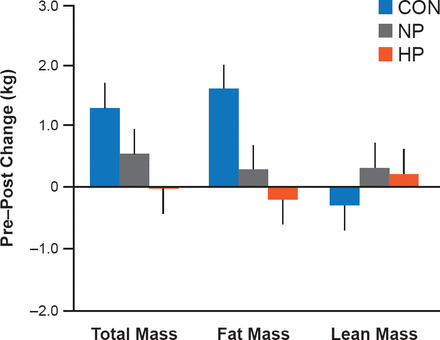Summary
Although most people will say they believe it is the most important meal of the day and lay publications often link it with increases in metabolism, weight loss, and improvements in mood and the immune system, Americans frequently skip breakfast. This article discusses the potential relationship between skipping breakfast and the rise in obesity in America and the benefits of eating a daily breakfast.
- Obesity
- Nutrition Physiology
- Obesity
- Nutrition
- Nutrition Physiology
Although most people will say they believe it is the most important meal of the day and lay publications often link it with increases in metabolism, weight loss, and improvements in mood and the immune system, Americans frequently skip breakfast. Heather J. Leidy, PhD, School of Medicine, University of Missouri, Columbia, Missouri, USA, discussed the potential relationship between skipping breakfast and the rise in obesity in America and the benefits of eating a daily breakfast.
Fifty years ago breakfast was a staple in the American diet. Today ∼30% of young people skip their morning meal [Deshmukh-Taskar PR et al. J Am Diet Assoc 2010]. Data from several studies indicate that the gradual decline in breakfast eating has mirrored the rise in obesity (Figure 1) [Haines PS et al. J Am Diet Assoc 1996; Siega-Riz AM et al. Am J Clin Nutr 1998; Timlin TM et al. Pediatrics 2008]. An analysis of cross-sectional data from the National Health and Nutrition Examination Survey (1999–2006) of children and adolescents showed that individuals who consume cereal at breakfast had lower intakes of total fat and cholesterol and higher intakes of total carbohydrate, dietary fiber, and several micronutrients (p<0.05 for all) than breakfast skippers. Breakfast skippers also had a higher body mass index (BMI) than cereal consumers (p<0.05) [Deshmukh-Taskar PR et al. J Am Diet Assoc 2010]. Breakfast skippers consume more sweets (40%), chips (55%), soft drinks (55%), and white bread (40%), and less vegetables (45%), fruit (30%), milk (60%) and whole grains (65%) [Sjoberg A et al. Eur J Clin Nutr 2003; Haire-Joshu D et al. J Am Diet Assoc 2011]. Among adolescents, there is an inverse relationship between increased BMI and breakfast frequency (Figure 2) [Timlin MT et al. Pediatrics 2008].
Relationship Between Reduced Breakfast Consumption and Obesity
Reproduced with permission from HJ Leidy, PhD.
Time 2 Breakfast and BMI Change (Adjusted for Baseline BMI and Breakfast Category, Age, and Gender)
Reproduced with permission from Pediatrics 2008;121(3), Copyright © 2008, by the American Academy of Pediatrics.
Although there is much observational evidence that breakfast skipping leads to overeating, poor diet control, poor food choices, cravings, weight gain, and hunger, there are few well designed randomized controlled trials (RCT). One RCT examined how the daily timing of increased dietary protein influences the feelings of fullness during energy balance and restriction in male adults [Leidy HJ et al. Br J Nutr 2009]. Diet comparisons were between normal and high-protein meals given at breakfast, lunch, or dinner. Men given additional amounts of protein at breakfast felt greater satiety throughout the day (Figure 3).
Increases in Breakfast Protein Improves Feelings of Fullness
HP=high protein; NP=normal protein.
Reproduced with permission from HJ Leidy, PhD.
Dr. Leidy also presented recent results from a randomized crossover study of the effects of high versus normal protein intake at breakfast on appetite, satiety, food motivation, and reward and evening snacking in overweight or obese breakfast-skipping girls (n=20) [Leidy HJ et al. Am J Clin Nutr 2013]. After 7 days, girls eating a normal- or high-protein breakfast had lower levels of the daily hunger and increased daily feelings of fullness. Breakfast eaters experienced beneficial alterations in the appetitive, hormonal, and neural signals that control food intake regulation (ghrelin and peptide YY). A high-protein breakfast led to further alterations in these signals and reduced evening snacking compared with those skipping breakfast, although no differences in daily energy intake were observed. High-protein intake at breakfast might provide a useful strategy to improve satiety, reduce food motivation and reward, and improve diet quality in overweight or obese teenage girls.
A follow-up to this study looked at long-term improvements (12 weeks) in energy intake regulation and body weight management in a similar, but older (mean age 19 years) adolescent population (n=57) using the same input parameters [Leidy HJ et al. FASEB J 2013 (abstr 249.7)]. High-protein intake at breakfast led to reduced daily hunger, increased daily fullness, voluntary reductions in daily calorie intake (mostly due to a reduction in unhealthy evening snacking of high fat/high sugar foods). Breakfast skipping individuals had significant (p<0.05) increases in fat mass by the end of the study compared with normal and high protein consumers (Figure 4).
Body Composition After 12 Weeks of Increased Breakfast Protein Consumption
CON=control group (habitual breakfast skipping group); HP=high protein; NP=normal protein.
Reproduced with permission from HJ Leidy, PhD.
The daily addition of a breakfast, particularly rich in dietary protein intake (35 g protein) leads to increased appetite control and satiety, and potentially improves body weight management in young people. Further research including longer-term RCTs with larger sample sizes is warranted to examine mechanisms of action throughout the day and causal links regarding breakfast and obesity.
- © 2014 MD Conference Express®














